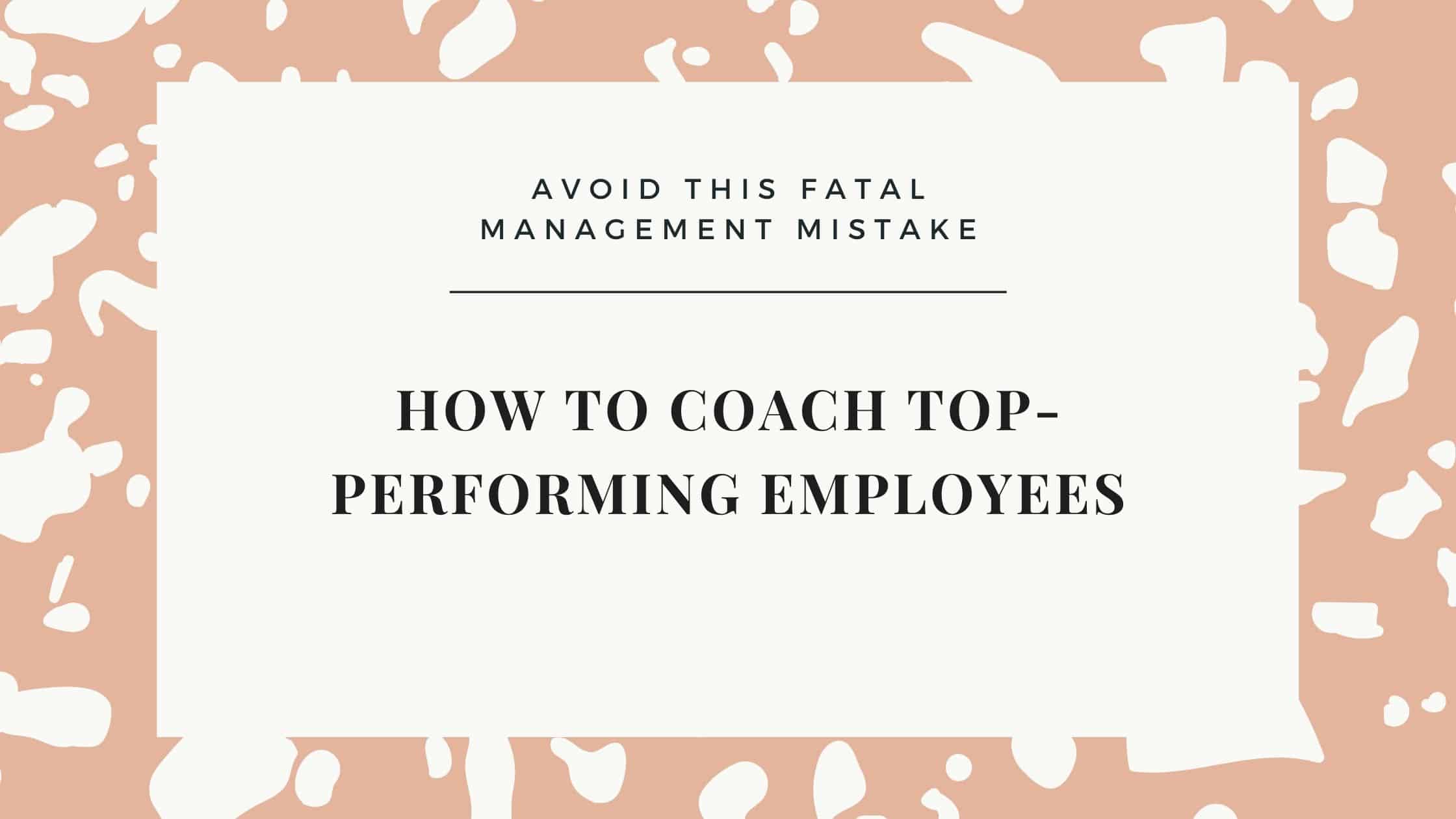It’s easy to get caught up in coaching an employee who is struggling and neglecting to coach your top-performing employees. However, this is a fatal mistake for your team. Top performers are usually the ones carrying the weight of the team. When you only focus on the underperforming employees, you’re neglecting to develop the skills of your best workers. As a result, your top performers start slacking off. Or worse, they become disgruntled and look for a new job. This article will discuss how to coach a top performer and why it’s essential to do so.
What is employee coaching, and why is it important?
Coaching employees is the most important task a manager does. Managers should spend a minimum of fifty percent of their time coaching employees.
Employee coaching is a process that helps employees improve their performance. In addition, it’s a way for managers to provide feedback and guidance to their team members.
Employee coaching is essential because it helps employees grow and develop their skills. It also allows managers to assess employee performance and identify areas that need improvement.
What are the benefits of coaching your top-performing employees?
When you coach your top-performing employees, you’re providing them with the opportunity to reach their full potential. Coaching helps top performers learn new skills and grow their current skills. It also allows them to explore new ideas and strategies. In addition, coaching helps top performers stay focused and motivated. And lastly, coaching helps top performers feel appreciated and valued.
How to coach a top-performing employee
When coaching a top performer, it’s essential to focus on their strengths. You can encourage top performers to continue doing what they’re doing well and help them develop new skills. Here are a few tips for coaching a top performer:
Praise and reward your top performers
Praise and reward your top performers for their hard work. Acknowledge the things they do well and thank them for their contributions. This will encourage them to continue working hard and performing at their best.
Ask open-ended questions to understand their goals and ambitions
When coaching top-performing employees, you typically don’t focus on performance or job skills. Instead, it focuses on career and personal growth. Ask the employee about their goals and what they hope to achieve in their career or professional life.
Help them develop new skills
Top performers usually want to learn new things and develop their skills. Help them do this by coaching them with guidance and feedback. Encourage them to try new things and experiment with different strategies.
Coaching tips for top-performing employees.
When coaching top-performing employees, it’s important to remember that they’re already meeting or exceeding expectations. This means that the focus of your coaching sessions should be on continuing to help them improve and grow. Here are a few tips for managers:
- Set clear goals and objectives for each coaching session.
- Make sure to give feedback and praise them for their achievements.
- Help them stay focused and motivated by encouraging them to continue setting high standards for themselves.
- Encourage them to experiment with new techniques and approaches.
- Help them stay engaged and challenged in their work.
The importance of giving feedback to top performers.
Giving feedback to top performers is crucial because it helps them maintain their high standards and excel. It also allows them to learn and grow from their successes. Therefore, managers should give feedback regularly and focus on the positive aspects of the employee’s work. Additionally, managers should provide specific, relevant, and objective feedback.
How do you have difficult conversations with top-performing employees?
Coaching top performers can be difficult, especially when handling difficult conversations. However, it’s important to remember that these conversations are essential for coaching. Here are a few tips for managers:
- Make sure to prepare for the conversation in advance. This includes gathering all relevant information and deciding what you want to achieve from the conversation.
- Stay calm and respectful during the conversation. Avoid becoming defensive or argumentative.
- Address the issue head-on, and don’t avoid it or try to sweep it under the rug.
- Be clear and concise in your communication, and avoid using jargon or technical terms that the employee may not understand.
- Listen carefully to what they have to say.
Closing thoughts on coaching your top performers.
Coaching top performers can be a challenging but rewarding process. It’s important to remember that these employees are already meeting or exceeding expectations, so the focus of your coaching sessions should be on helping them improve and grow.
Providing feedback is an integral part of this process, and managers should focus on the positive aspects of the employee’s work. Additionally, managers should be prepared for difficult conversations and address any head-on issues. Managers can help their top performers stay engaged and reach their full potential by doing these things.


